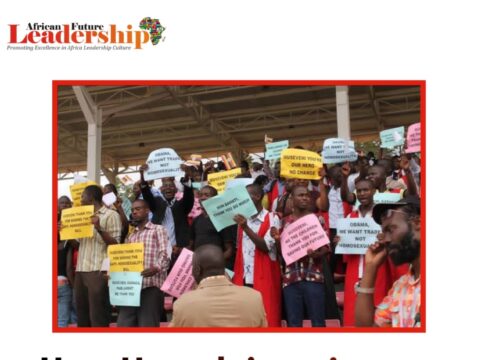When Mr. David Bahati introduced the Anti-Homosexuality Act in 2009, it seemed that it would cause chaos both at home and abroad. As it really did.
In the bill, the Ndorwa West lawmaker proposed the death penalty for homosexuals who seduce minors or infect someone with HIV/AIDS. The House passed the bill in December 2013, with spokesperson Rebecca Kadaga describing it as a “Christmas gift for Ugandans”.
On February 24, 2014, President Museveni signed a law to decriminalize homosexuality. It came to be known as the Anti-Homosexuality Act (AHA), 2014.
When the Act was approved and entered into law, one of the most influential organizations was the Inter-Religious Council of Uganda (IRCU). The religious group had to fire some of their staff when the United States Agency for International Development (USAID) withdrew its support amounting to 34.5 million dollars (about Shs126 billion).
The money had been provided to IRCU as part of USAID’s five-year HIV/Aids support programme for Uganda. It saw 70,000 people supported with palliative care, 40,000 people on anti-retroviral medication buttressed and 45,000 orphaned or vulnerable children given support
The law became contentious because, according to proponents, it was aimed at “upholding and protecting Uganda’s cultural values against Western culture.” Those against the law said it was too harsh and against fundamental human rights.
The law, among others, prescribed tough penalties such as life imprisonment for aggravated homosexuality and same-sex marriages, and a minimum of seven years in jail for other related offences.
Later, the Lesbian, Gay, Bisexual, Transgender, Intersex, Queer and others (LGBTIQ+) community petitioned court to nullify it on grounds that it was passed without quorum.
On August 1, 2014, the law was annulled for having been passed by the House without the required quorum of two-thirds of all lawmakers.
Fr. Simon Lokodo (RIP), the Ethics minister at the time, said they were ready to reintroduce the Bill and that lawmakers were ready to throw their weight behind it.
Fr. Lokodo passed away last year.
In 2019, Mr. George Oundo, the chairperson of the ex-gay community in Uganda, petitioned Ms. Kadaga to re-table the Bill so that it can help expose the extent of the moral breakdown, especially with the children and the youth.
Mr. Oundo told Ms. Kadaga he wanted to seek an audience with President Museveni to detail the pain they go through medically. He also was desirous of showing the stigma they face from the community.
In May 2021, Uganda for the second time within seven years criminalized gay sex and this time imposed a 10-year jail term for convicts.
READ MORE: Egyptian President Sisi visits India amid investment push
The new offence and penalties were contained in the report of the Legal and Parliamentary Affairs Committee presented to the House. Lawmakers scrutinizing provisions of the Sexual Offences Bill, 2019, passed them on May 3.
The legislation also bans prostitution, which is already criminalized under the Penal Code Act. Clause 6 of the Bill proposes that indecent communication where a person—by whatever means—sends material of a sexual nature to another person without the consent of that other person be fined three hundred currency cents (Shs6 million) or be imprisoned for seven years or both.
Other offences also criminalized include sexual assault, indecent assault, cat-calling, indecent communication, sexual harassment, exploitation of detainees, sexual exploitation, unnatural offences, simple defilement, aggravated defilement, and incest.
The Bill, now an Act of Parliament, will become law only if President Museveni assents to it.
Yesterday, Ms. Kadaga, who is now the First Deputy Prime Minister and Minister of East African Affairs, fired off a subtweet responding to a sound bite of Deputy House Speaker Thomas Tayebwa in which he urged lawmakers on the Education committee to treat the “issue of homosexuality in schools” with “urgent priority.”
“The 9th Parliament, raised this concern and alarm, even enacted a law but am sure you are aware how it’s (sic) ‘annulment’ was sponsored and facilitated,” the Speaker Emeritus of the ninth and 10th Parliament tweeted.




